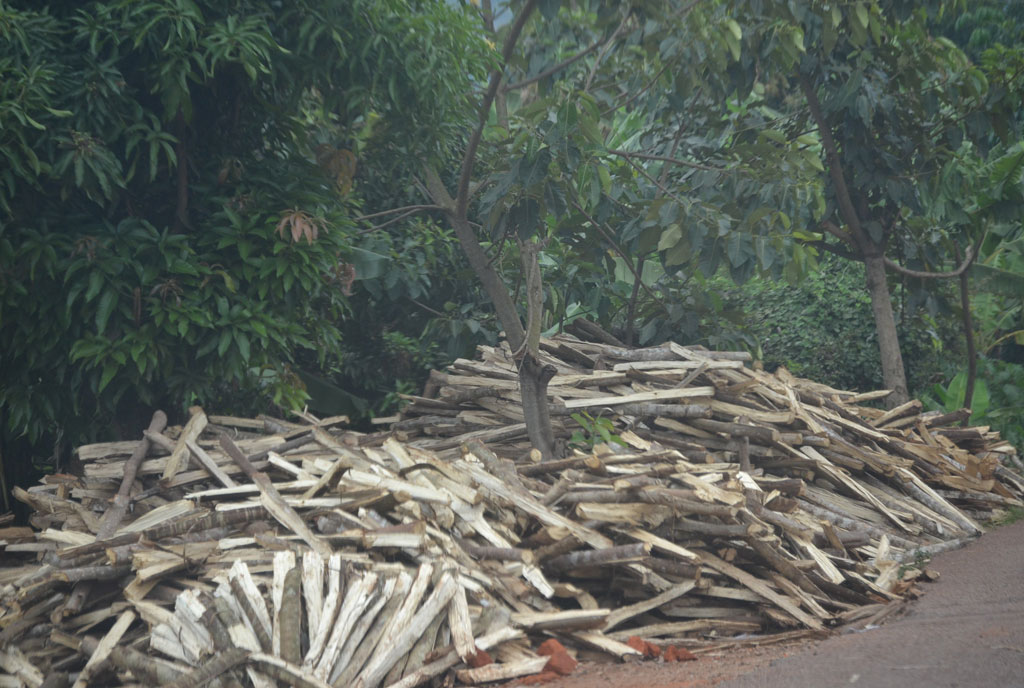
WRITER: Howard Mwesigwa. PHOTO/FILE/COURTESY
Yesterday we commemorated the International Day for Biological Diversity. It’s imperative to reflect on the state of our natural world and the pressing need for targeted and concerted action to combat biodiversity loss.
Uganda, with her diverse ecosystems and prolific biodiversity, stands at a critical juncture in this global fight. Our theme this year, “Be Part of the Plan,” underscores the paramount importance of our collective efforts toward addressing biodiversity loss and protecting our planet’s imperiled heritage.
Biodiversity, the variety of life on Earth, is fundamental to human well-being.
Uganda boasts of 18,783 recorded species of fauna and flora and ranks among the top ten most bio-diverse countries in Africa. Uganda is host to 53.9 percent of the World’s population of mountain gorillas, 11 percent (1,063 species) of the world’s recorded species of birds (50 percent of Africa’s bird species), 7.8 percent (345 species) of the Global Mammal Diversity (39 percent of Africa’s Mammal Richness), 19 percent (86 species) of Africa’s amphibian species richness and 14 percent (142 species) of Africa’s reptile species richness, 1,249 recorded species of butterflies and 600 species of fish.
There are 30 species of antelope, 24 species of primates including charismatic species of Mountain Gorillas and Chimpanzees, and more than 5,406 species of plants so far recorded of which, 30 species of plants are endemic to Uganda.
According to the Ministry of Water and Environment, Uganda loses biodiversity between 10 and 11 per cent every decade. This Biodiversity loss has and continues to manifest in the declining species abundance largely due to over-exploitation of biological resources, including trees and woody biomass largely attributed to unsustainable use of biodiversity resources, shrinking habitats especially wetlands and forests largely due to conversion of habitats into human settlements and other commercial land uses. Additional concerns include the pushing of many local species to the brink of extinction, invasive species, human-wildlife conflicts, encroachment on protected areas, agricultural expansion, climate change and variability, illegal wildlife trade, and pollution. There are also socio-economic pressures in the country including human population increase, gender inequality and poverty.
However, amidst all these challenges, there is hope. In recent years, there has been remarkable traction and progress related to environmental monitoring, oversight of reporting procedures, transparency in government agencies, measures to combat corruption and to increase the effectiveness of environmental conservation and natural resource management mechanisms and cognate advocacy on environmental issues.
We need to accelerate the restoration of degraded ecosystems especially wetlands and forests, curb illegal wildlife trade, build capacity for effective implementation of the access and benefit-sharing arrangements, manage pollution and invasive alien species, invest in research, mainstream biodiversity into sectoral, cross-sectoral and district development plans, enhance participation of indigenous peoples and local communities especially women and youth in the implementation of biodiversity programmes, build capacity of local governments for effective implementation at the district level, adopt robust regulatory frameworks and create public awareness on biotechnology and biosafety and also embark on innovative resource mobilization for implementing our local and global Biodiversity conservation and restoration targets.
Let us renew our commitment to protecting Uganda’s lush Biodiversity. Whether through supporting conservation initiatives, advocating for policy reform, or making sustainable green choices in our daily lives.
Mr Howard Mwesigwa, Team Leader – Energy, Environment & Sustainability Kalikumutima & Co. Advocates




